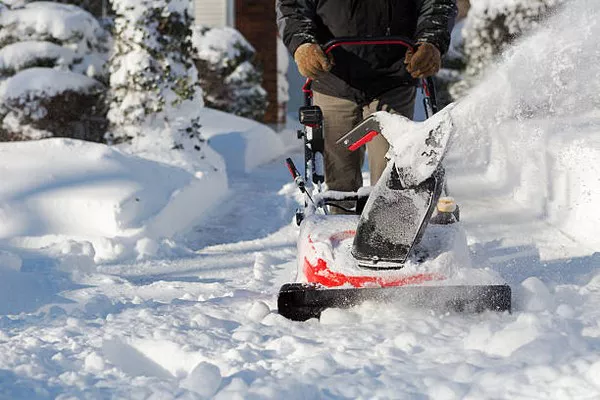Cordless snow blowers have become an essential tool for many homeowners who need a convenient and efficient way to clear snow without the limitations of a power cord or the hassle of gas engines. A significant factor in their usability is the battery life. Understanding how long the battery lasts on a cordless snow blower is crucial for anyone considering this investment. This article explores the variables that influence battery life, the expected performance under various conditions, and tips for maximizing battery efficiency.
Understanding Battery Specifications
The battery life of a cordless snow blower largely depends on the type and capacity of the battery used. Most cordless snow blowers on the market today use lithium-ion batteries due to their high energy density, long life, and relatively low maintenance needs. The key specifications to look at are:
Voltage (V): This measures the power of the battery. Common voltages for snow blower batteries range from 40V to 80V. Higher voltage typically translates to more power, which can improve performance in heavier snow.
Ampere-Hours (Ah): This measures the battery’s capacity. A higher Ah rating means the battery can store more energy, which translates to longer runtime. Batteries for snow blowers usually range from 4Ah to 8Ah.
Watt-Hours (Wh): This is the product of voltage and ampere-hours (V x Ah) and gives a more complete picture of the battery’s capacity. For instance, a 60V 5Ah battery has 300Wh of capacity.
Typical Battery Life
Under ideal conditions, the battery life of a cordless snow blower can range from 20 minutes to over an hour on a single charge. However, this duration can vary based on several factors:
Snow Conditions: Light, fluffy snow requires less power to clear than wet, heavy snow. The latter can significantly reduce battery life as the snow blower has to work harder.
Clearing Path: A wider clearing path will require more power, reducing battery life. Narrower paths, conversely, are less demanding.
Usage Pattern: Continuous use drains the battery faster than intermittent use. Allowing the snow blower to rest occasionally can help extend battery life.
Temperature: Cold weather can impact battery performance. Lithium-ion batteries tend to lose efficiency in low temperatures, which can shorten their runtime.
Performance Under Various Conditions
To better understand how long a battery might last under different conditions, consider these scenarios:
Light Snow (1-3 inches, fluffy): In this situation, a cordless snow blower can often run for 45 minutes to an hour. The light resistance allows the motor to work efficiently without draining the battery quickly.
Moderate Snow (3-6 inches, moderate moisture): Battery life in these conditions might range from 30 to 45 minutes. The increased weight and density of the snow require more power, reducing the overall runtime.
Heavy Snow (6+ inches, wet or icy): When dealing with heavy, wet snow, expect the battery to last around 20 to 30 minutes. The motor has to exert much more effort, leading to faster battery depletion.
Maximizing Battery Efficiency
To get the most out of your cordless snow blower’s battery, consider the following tips:
Pre-Clear the Area: If possible, pre-clear paths and driveways with a shovel to reduce the load on the snow blower.
Maintain the Battery: Proper battery maintenance can extend its life. Store the battery in a cool, dry place when not in use, and avoid exposing it to extreme temperatures. Follow the manufacturer’s guidelines for charging and discharging.
Use Multiple Batteries: Investing in an extra battery can double your effective runtime. While one battery is charging, you can use the other to continue clearing snow.
Optimal Usage: Use the snow blower in optimal conditions whenever possible. Try to clear snow shortly after it falls, before it has a chance to become compacted or mixed with ice.
Regular Maintenance: Keep the snow blower in good condition by regularly checking for and removing debris, ensuring that moving parts are well-lubricated, and inspecting the blades for sharpness.
Choosing the Right Snow Blower
When choosing a cordless snow blower, consider the size of the area you need to clear and typical snow conditions in your region. If you live in an area with frequent heavy snowfalls, a snow blower with a higher voltage and larger battery capacity (e.g., 80V 6Ah) will be more effective and provide longer runtime. For areas with lighter, less frequent snow, a 40V 4Ah battery might suffice.
Future of Battery Technology
Advancements in battery technology continue to improve the performance and efficiency of cordless snow blowers. Innovations such as solid-state batteries promise higher energy densities and better performance in cold weather, potentially extending runtime and lifespan. Additionally, improvements in fast-charging technology can reduce downtime between clearing sessions, making cordless snow blowers even more convenient.
See Also CAN SNOWBLOWERS CLEAR SLUSH?
Conclusion
The battery life of a cordless snow blower is a critical factor in its overall performance and usability. While the typical runtime ranges from 20 minutes to over an hour depending on conditions, understanding the factors that influence battery life can help you make an informed decision and optimize usage. By choosing the right model for your needs, maintaining the battery properly, and leveraging multiple batteries if necessary, you can ensure that your cordless snow blower remains a reliable tool for winter snow removal. As technology advances, we can expect even greater improvements in battery efficiency, making cordless snow blowers an increasingly attractive option for homeowners.

